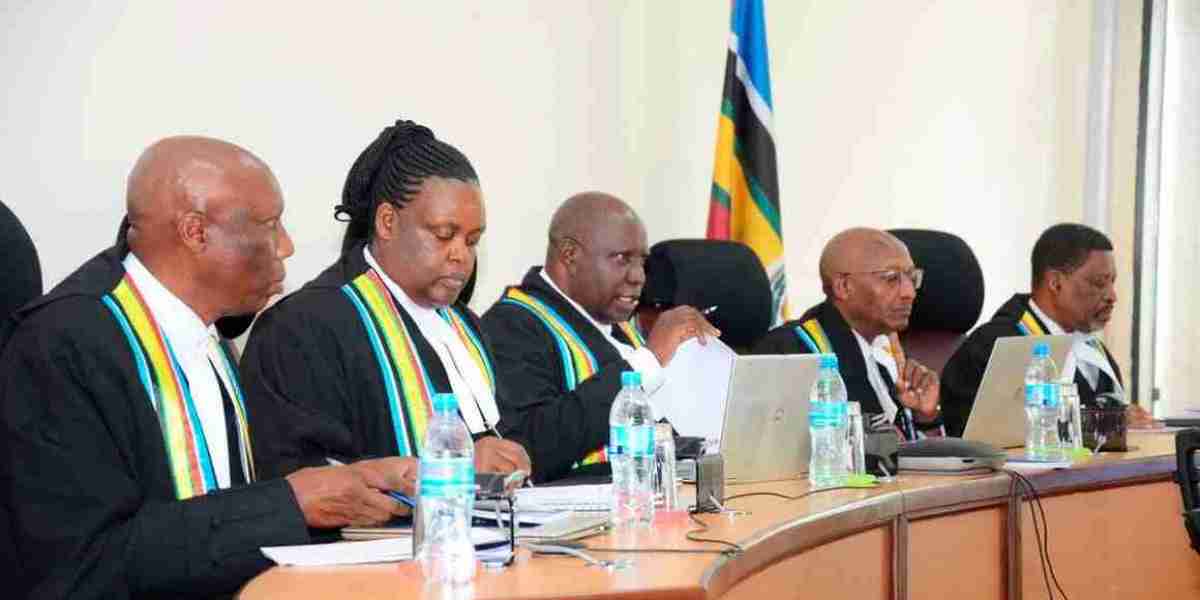Two EAC partner States- Uganda and Burundi, are on the spot for delaying the ratification of an enforcement mechanism.
They are yet to ratify the protocol to operationalise the extended jurisdiction of the East African Court of Justice (EACJ), which was approved by the Heads of State Summit back in 2013.
The EAC Treaty provides for the enactment of a protocol to operationalise the extended jurisdiction of the court to cater to matters arising from the Customs Union, Common Market. On the other hand, the EAC Committee on Trade Remedies, which is ideally the go-to body in addressing trade disputes, remains in limbo.
“On February 20, 2015, the Protocol to Operationalise the Extended Jurisdiction of the EACJ was signed by the Heads of State of the Partner States,” said Christine Mutimura-Wekesa, Deputy Registrar of the EACJ. “Since then, the protocol has been ratified by Kenya, Rwanda, and Tanzania. Uganda and Burundi are yet to ratify it.”
The newer EAC entrants, South Sudan, DR Congo and Somalia, are in the process to ratify the protocol. The EAC Summit, in its 15th meeting on November 30, 2013, approved the Council’s recommendation to extend jurisdiction of the EACJ to cover trade and investment matters.
Various stakeholders have been calling for efficient mechanisms to implement key EAC legal instruments, in particular the EAC Common Market Protocol, to improve movement of goods, services, and people across the region.
But the EACJ lacks the muscle due to failure by all the EAC partner States to ratify the instrument.

Judges of the Appellate Division of the East African Court of Justice (EACJ). PHOTO | FILE | NMG
Despite a robust legal regime on trade, the East African Community (EAC) still lacks an enforcement mechanism for its court and a functional regulatory body on trade disputes.
Two EAC partner States- Uganda and Burundi, are on the spot for delaying the ratification of an enforcement mechanism.
They are yet to ratify the protocol to operationalise the extended jurisdiction of the East African Court of Justice (EACJ), which was approved by the Heads of State Summit back in 2013.
The EAC Treaty provides for the enactment of a protocol to operationalise the extended jurisdiction of the court to cater to matters arising from the Customs Union, Common Market. On the other hand, the EAC Committee on Trade Remedies, which is ideally the go-to body in addressing trade disputes, remains in limbo.
“On February 20, 2015, the Protocol to Operationalise the Extended Jurisdiction of the EACJ was signed by the Heads of State of the Partner States,” said Christine Mutimura-Wekesa, Deputy Registrar of the EACJ. “Since then, the protocol has been ratified by Kenya, Rwanda, and Tanzania. Uganda and Burundi are yet to ratify it.”
The newer EAC entrants, South Sudan, DR Congo and Somalia, are in the process to ratify the protocol. The EAC Summit, in its 15th meeting on November 30, 2013, approved the Council’s recommendation to extend jurisdiction of the EACJ to cover trade and investment matters.
Various stakeholders have been calling for efficient mechanisms to implement key EAC legal instruments, in particular the EAC Common Market Protocol, to improve movement of goods, services, and people across the region.
But the EACJ lacks the muscle due to failure by all the EAC partner States to ratify the instrument.
“There are certain vital issues such as sanctions, admission, that do not require consensus. There are certain urgent and important matters that we think should be subjected to a two-thirds majority decision-making process,” she explained.
The EAC Treaty, in Chapter 12, provides for investment and industrial development in partner states, but no framework exists, which specifically speaks to matters of investment, resolution of related disputes, or minimum requirements of the same at the national level.
This presents a situation where only recourse by the courts is to the Treaty itself or the Common Market Protocol, since investments are largely regulated by bilateral investment treaties.


